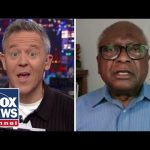Pope Francis passed away the day after Easter, leaving a legacy sparking reflection among Americans. His death came as faithful celebrated Christ’s resurrection, a timing many called symbolic of his faith-driven leadership. New Yorkers and conservatives nationwide recalled a pope who balanced tradition with outreach to society’s margins, though not without debate.
He championed the unborn and family values, earning respect from pro-life advocates. Yet his immigration stance—pushing borders open to migrants—clashed with patriots worried about national sovereignty. Many conservatives admired his bold defense of religious freedom globally, standing against regimes persecuting Christians.
The first Latin American pope brought a pastoral warmth, visiting prisons and washing feet. But some traditionalists felt he downplayed doctrine for political correctness, blurring lines on moral issues. His calls for climate action and wealth redistribution divided conservatives prioritizing economic liberty over globalist agendas.
Evangelical leaders praised his heart for the poor but urged stronger biblical fidelity in Catholic teachings. Catholics in cities like New York valued his emphasis on mercy, though some longed for clearer orthodoxy amid cultural decay. His final letter backing bishops against mass deportations highlighted tensions between compassion and law.
Francis never returned to Argentina, avoiding socialist traps but leaving questions about engagement. His handling of church abuse scandals drew criticism, yet he modeled humility by meeting victims. Hardworking Americans appreciated his focus on grassroots service over Vatican bureaucracy.
The pope’s death during Easter week reminded believers of Christ’s victory over death. His legacy mixes admiration for defending life with frustration over liberal drift. Patriots hope future leaders blend his compassion with unapologetic truth in a world hostile to faith.
New Yorkers recalled his 2015 U.N. speech urging care for creation and families—a message resonating in blue-collar communities. Critics argue his eco-policies risked empowering anti-growth agendas, but supporters saw Christ-like stewardship. His push for peace in divided times offered a counter to woke division.
As the church mourns, conservatives pray for a successor anchoring doctrine while engaging modern struggles. Francis’ mix of conviction and complexity leaves a challenge: Can the church hold fast to timeless truths while serving a broken world? For now, patriots honor his heart for Jesus while clinging to Scripture’s unchanging light.




